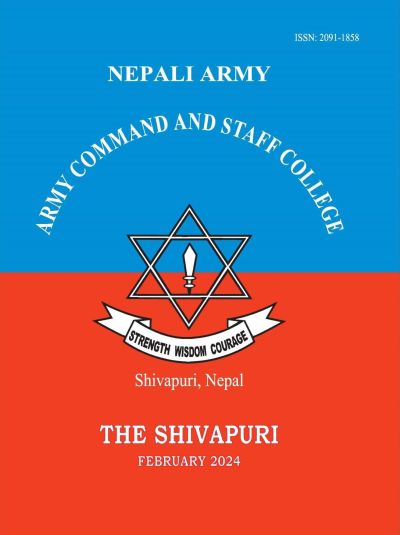Examining Nepal's CMR Dynamics and Contemporary Circumstances for Strengthening it
DOI:
https://doi.org/10.3126/shivapuri.v25i1.63432Keywords:
Civil-military relations, Political transitions, Civilian control, Strategic approaches, National securityAbstract
Civil-Military Relations (CMR) in Nepal has been a subject of ongoing contention amid the nation's dynamic political landscape. This article deals with Nepal's CMR dynamics, focusing on its historical progression and CMR-related contemporary circumstances. Despite the Nepali Army's historic non-intervention in politics, the state of CMR remains contentious. Drawing upon established CMR theories such as Principal-Agent, Institutional, Convergence, and Trinity theories, this study explores the root causes of CMR-related circumstances and its outcomes posing challenges in Nepal and proposes viable approaches for its mitigation. Highlighting the importance of civilian control over the armed forces, the study emphasizes the significance of coordinated efforts, effective communication, and respective stakeholder understanding on consolidating CMR. It asserts that the Nepali Army, being at the forefront of national security, holds a pivotal responsibility in fostering conducive CMR approaches, crucial for Nepal's national security interests. In essence, the article highlights the urgency of strengthening CMR in Nepal, advocating collaborative efforts among stakeholders to ensure effective civilian control, and safeguarding national interests and sovereignty.




